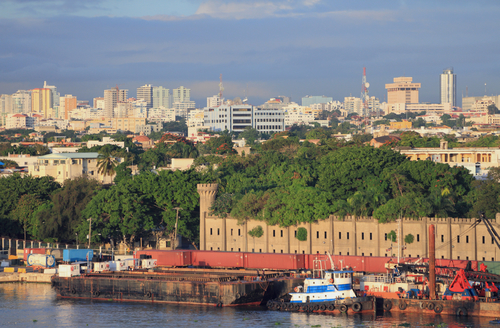With some three million residents located in the city and the surrounding suburb area, Santo Domingo – the capital of the Dominican Republic – is the largest city in the Caribbean. The city also has an established expat community, and it’s highly likely that if you’re being relocated to the Dominican Republic, you will be based in Santo Domingo. It’s an attractive place to live for many reasons, from the low cost of living and pleasant weather to the easily accessible amenities and infrastructure, especially in comparison to other Caribbean counterparts.For migrant families, the number one priority when relocating to a new home is choosing a school which offers your children a good standard of education, and gets them settled in as quickly as possible. That’s why we’ve created this guide to finding a school in Santo Domingo. The guide will help you understand the Dominican educational system and the best way to find a perfect fit for you and your family when it comes to schooling in your new home.
Education In The Dominican Republic
While the Dominican Republic remains popular with expats and has a lot to offer, the overall quality of education in the country is relatively low, with education only compulsory up until the age of 14. The literacy rate in the Dominican Republic sits at around 90 percent, which on a global index is higher than average. However, this level of literacy is usually at a level equivalent to sixth-grade in the US.
The Dominican Education System
The Dominican education system is divided into four levels.
Nivel Inicial
This level of pre-school education for children under the age of six is compulsory.
Nivel Basico
Primary school education for children between the ages of six and 14. This level of education is also compulsory.
Nivel Medio
As mentioned earlier, this secondary school education for children between the ages of 14 and 18 is not compulsory.
Nivel Superior
Higher level education for young people above the age of 18. As you would expect, this education is also not compulsory.
Public education in the Dominican Republic is free to all children under the age of 14, regardless of their nationality or immigration status. However, if children wish to proceed to higher levels of education within the public-school system, a Dominican citizenship is required.
Private schools in the Dominican Republic tend to cater to multiple nationalities, meaning the curriculum is mostly taught in English. A proficient level of English is therefore required and must be demonstrated in order to enroll in the majority of the country’s private schools.
Tuition fees for private schools vary, but it is worth noting that religious private schools are partially funded by the Dominican government.
You can read our more in-depth article about the Dominican education system here.
Schools In Santo Domingo
If you’re an expat in Santo Domingo or looking to relocate to the city, you may have already noticed that trying to find information about schools there can be frustrating. That being said, more than 70 percent of the schools in Santo Domingo are private institutions, so you won’t be short of options! Here are some of the schools that are most highly rated among the expat community.
Carol Morgan
Also referred to as CMS, the Carol Morgan School in Santo Domingo is considered one of the more expensive options when it comes to private tuition. However, the school is highly reputable and has been educating students for 85 years. The campus is stretched over 15 acres and includes an outdoor amphitheatre.
New Horizons
The New Horizons bilingual school is another popular option with expats. With 40 years’ experience under its belt, this school offers a: “dual English and Spanish system and integrates French as a second language from the fifth grade.”
St George’s School
St George’s is a British international school that offers both IGCSE (Cambridge International General Certificate of Secondary Education) and IB (International Baccalaureate) programmes. St George’s focuses on teaching an: “innovative education through a challenging international curriculum”.
International School of Santo Domingo
The International School of Santo Domingo prides itself on providing a style of learning that is best suited to the cognitive functions of children. Their website states that: “language and math skills are taught through the areas of social studies, science, literature and humanities.”
How Can I Find Schools In Santo Domingo?
As mentioned, searching for information on schools in Santo Domingo can be frustrating. However, you can try online resources and databases, our favourite being the International School Database.
This will allow you to search for international private schools in the area, which can be done by your children’s age, or the preferred language of instruction. Alternatively, you can try joining an expat community or forum to look for recommendations from fellow expats who have already enrolled their children in a school in Santo Domingo.
Have you lived in the Dominican Republic? Share your thoughts in the comments below, or answer the questions here to be featured in an interview!

